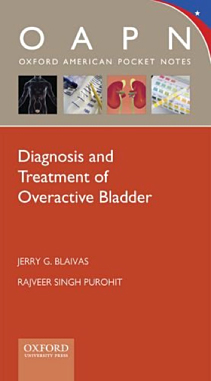Nocturia
What is Nocturia?
Nocturia is the medical phrase for getting up at night to urinate.
What Causes Nocturia?
Nocturia, broadly speaking, can be caused by two things:
- The patient may make too much urine i.e. the patient’s kidneys make too much urine during night-time, a condition that is called nocturnal polyuria.
- The patient functionally has a smaller bladder capacity during the night.
A patient may also have a combination of nocturnal polyuria and low nocturnal bladder capacity.
How do you distinguish different causes of Nocturia?
We’ve found that the best way to distinguish between these two underlying causes is to have our patients complete a 24-hour bladder dairy. What this diary entails is recording how much one urinates, what time one urinates, and why one urinates for each urination over a 24-hour period (including the night-time). The bladder diary will help us differentiate between the three aforementioned causes: making too much urine at night, having a small bladder capacity at night, or some combination of the two.
What causes Nocturnal Polyuria?
Patients can trace nocturnal polyuria to a number of potential causes. These include drinking too much fluid in the evening, eating foods that contain high fluid contents (e.g. fruits), problems with hormonal regulation, cardiac problems, and sleep apnea. Additionally, swelling in the legs, called peripheral edema, can result in fluid mobilizing and being converted to urine when a patient lies down, also resulting in night-time urination(s).
How do you treat Nocturnal Polyuria?
If in-office evaluation and examination reveals that a patient does in fact produce too much urine at night (nocturnal polyuria), we may recommend fluid restriction. Other times, we will tell patients to keep their legs elevated in the afternoon to mobilize the fluid and minimize the amount of swelling in their extremities. Alternatively, we have given patients water pills (diuretics) during the daytime to maximally mobilize the fluid in their bodies before they go to sleep. Patients with hormonal problems may be evaluated with multiple tests and may even need an endocrinologic workup.
What if your Nocturia is not caused by Nocturnal Polyuria?
There are multiple reasons a patient may have a smaller bladder capacity at night-time. For men, the most common reason is an enlarged prostate gland. This problem can typically be treated with medications initially. Those who do not respond to medications, a surgery that opens up the prostrate passage can often be very helpful.
Is Nocturia Correctable?
Nighttime urination is typically is a curable problem. However, improper evaluation can often send patients down the wrong treatment path. Therefore, we strongly believe in an individualized approach which begins with a voiding diary. After this diary is complete we can provide more concrete solutions to the problem.
———
Why Choose a Uro Center Urologist in New York?
The urologists at the Uro Center in New York are experts in their field, bringing academic and research based innovation to the clinical forefront. Our urology team specializes in areas of treatment such as: robotic surgery, reconstructive urology, men’s health & infertility, kidney stones, urologic oncology, penile implant surgery, urethral stricture, BPH, Urinary incontinence treatment, Mesh complications, Enlarged prostate treatment, Urodynamics, vesicovaginal fistula and female incontinence in New York.
Request an Appointment











